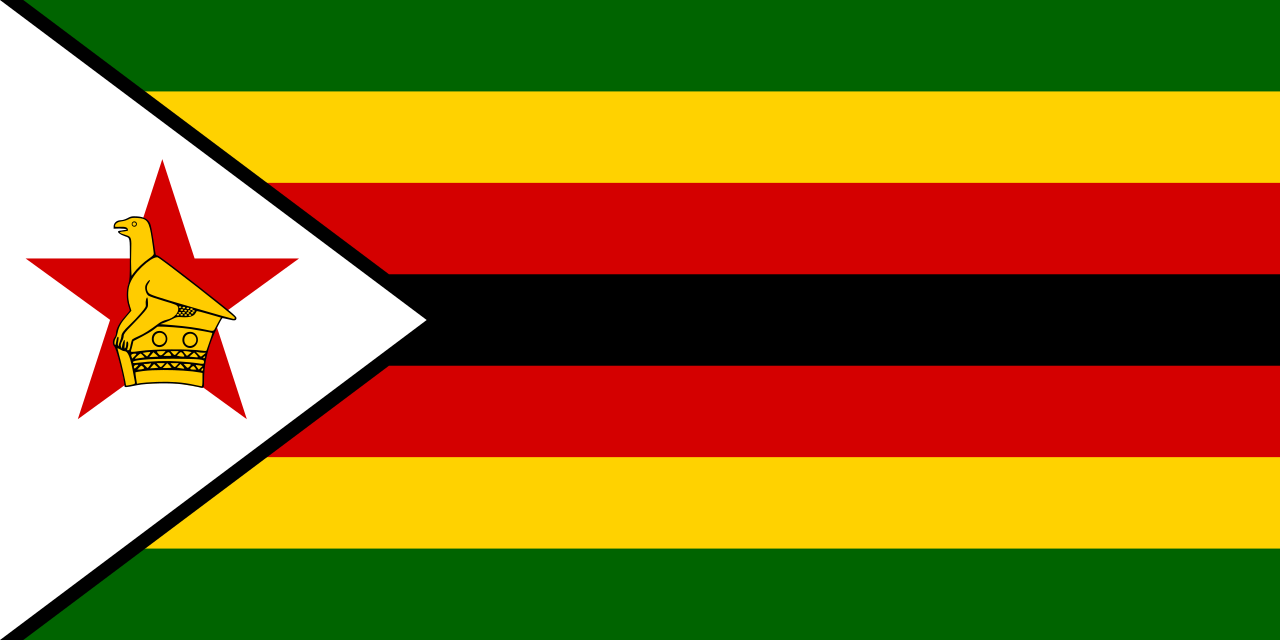The UK annexed Southern Rhodesia from the former British South Africa Company in 1923. A 1961 constitution was formulated that favored whites in power. In 1965 the government unilaterally declared its independence, but the UK did not recognize the act and demanded more complete voting rights for the black African majority in the country (then called Rhodesia). UN sanctions and a guerrilla uprising finally led to free elections in 1979 and independence (as Zimbabwe) in 1980. Robert MUGABE, the nation's first prime minister, has been the country's only ruler (as president since 1987) and has dominated the country's political system since independence. His chaotic land redistribution campaign, which began in 1997 and intensified after 2000, caused an exodus of white farmers, crippled the economy, and ushered in widespread shortages of basic commodities. Ignoring international condemnation, MUGABE rigged the 2002 presidential election to ensure his reelection.
In April 2005, the capital city of Harare embarked on Operation Restore Order, ostensibly an urban rationalization program, which resulted in the destruction of the homes or businesses of 700,000 mostly poor supporters of the opposition. MUGABE in June 2007 instituted price controls on all basic commodities causing panic buying and leaving store shelves empty for months. General elections held in March 2008 contained irregularities but still amounted to a censure of the ZANU-PF-led government with the opposition winning a majority of seats in parliament. Movement for Democratic Change - Tsvangirai opposition leader Morgan TSVANGIRAI won the most votes in the presidential poll, but not enough to win outright. In the lead up to a run-off election in June 2008, considerable violence against opposition party members led to the withdrawal of TSVANGIRAI from the ballot. Extensive evidence of violence and intimidation resulted in international condemnation of the process. Difficult negotiations over a power-sharing "government of national unity," in which MUGABE remained president and TSVANGIRAI became prime minister, were finally settled in February 2009, although the leaders failed to agree upon many key outstanding governmental issues. MUGABE was reelected president in June 2013 in balloting that was severely flawed and internationally condemned. As a prerequisite to holding the election, Zimbabwe enacted a new constitution by referendum, although many provisions in the new constitution have yet to be codified in law.
Zimbabwe is semi-presidential republic.
Source: CIA World Factbook
Members:
Resources
Displaying 36 - 40 of 59Rhodes Estates Act [Chapter 20:17].
The Nyanga and Matopos Estates shall vest in the President and, subject to this Act, shall be held in trust by him for the people of Zimbabwe. The Trustee may, subject to section 5 and of sections 4 and 6, in addition to using the Estates in the manner set out in the Will of Cecil John Rhodes, use portions of the Estates for agricultural purposes, including forestry, fisheries and the conservation or management of wild life and other purposes set out in section 5. The Trustee may grant such servitudes in respect of any portion of the Estates pursuant to section 7.
Fencing Act [Chapter 20:06].
This Act concerns the fencing of land. "Fence" means a fence separating the adjoining pieces of land of different owners and includes: (a) any gate, grid track, other than a grid on a main road as defined in the Roads Act, or stile and any other means of passage over or through the fence concerned; and (b) any ditch, hedge, railings or wall used as a fence. Part II of this Act prescribes that each magistrates court shall be a fencing court for the province in which it is situated prescribes the procedures of court proceedings.
Stock Trespass Act [Chapter 19:14].
This Act concerns the control of the grazing of livestock. The Act consists of 68 sections, divided into 9 Parts: Preliminary (I); Establishment, control and administration of pounds and appointment of poundmaster and other staff (II); Management of pounds (III); Impounding of stock (IV); Duties of Poundmasters in relation to impounded stock (V); Poundmasters' fees (VI); Release, sale or disposal of impounded stock (VII); Special pounds (VIII); General (IX).A local authority may, by notice in the Gazette, establish one or more pounds within its area (sect.
Small Enterprises Development Corporation Act [Chapter 24:12].
This Act provides for the establishment of the Small Enterprises Development Corporation and the Small Enterprises Development Board, defines powers and functions of the Corporation and provides for the functioning and financing of the Corporation.The functions of the Corporation shall be to: (a) encourage and assist in the establishment of cooperatives and small commercial or industrial enterprises; (b) provide financial assistance, management counselling and training, information, advice or assistance to cooperatives and small commercial or industrial enterprises; (c) advise the Minister
Agricultural Finance Act [Chapter 18:02].
This Act establishes the Agricultural Finance Corporation. The Corporation shall carry out the following functions: (a) subject to such terms and conditions as the Board of the Corporation may impose, make advances: (i) to any person for any purpose connected with the production, processing, storage, packing or marketing of any produce obtained from agriculture or any operations relating to agriculture, including: A. the acquisition of land; B.


